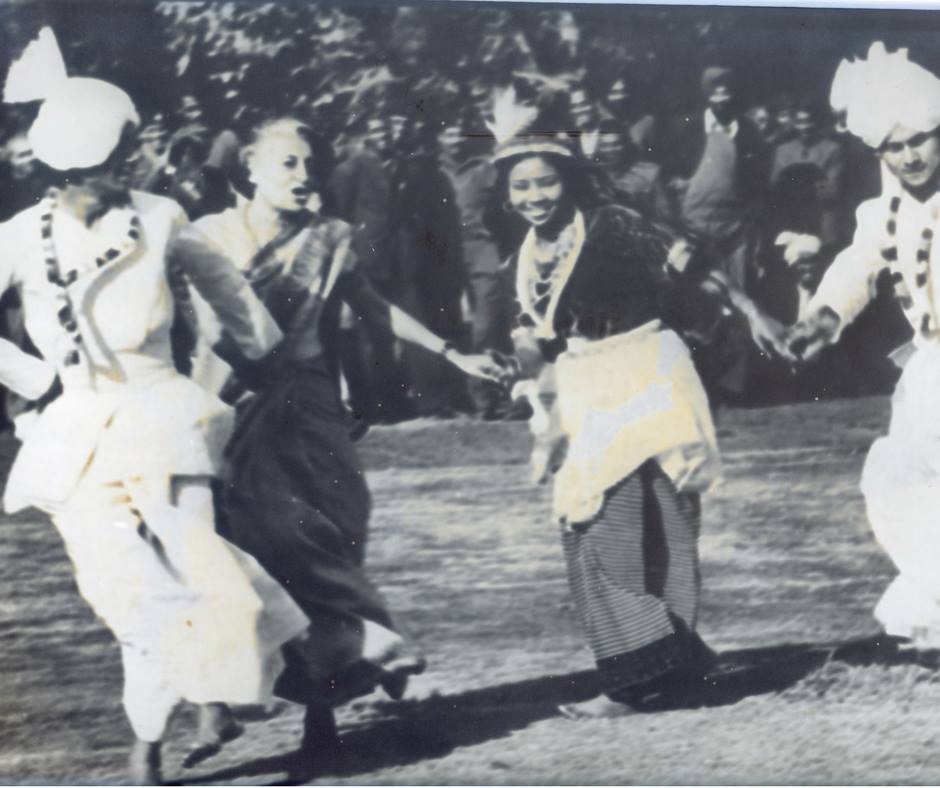 https://www.youtube.com/shorts/VLQlLH35dgk
https://www.youtube.com/shorts/VLQlLH35dgk
The full long version of this story is behind a paywall. https://www.thenewsminute.com/long-form/rss-and-bjps-quiet-takeover-of-auroville
https://timesofindia.indiatimes.com/city/chennai/aurovilles-dream-turns-into-legal-chaos-land-encroachment-and-drug-allegations-surface/articleshow/113437250.cms ,,In September 1988, the Union govt took control, enacting the Auroville Foundation Act to resolve internal disputes between community power centres and representatives of the Sri Aurobindo Society. By January 1991, the Auroville Foundation was formally established. The Mother had laid out Auroville's vision in its charter, comprising four key tenets: "Auroville belongs to nobody in particular; it belongs to humanity as a whole. But to live in Auroville, one must be a willing servitor of the divine consciousness. Auroville will be a place of unending education, constant progress, and youth that never ages."..
The Union govt's recent involvement in Auroville's administr ..The lands are held by the Auroville Foundation under the Auroville Foundation Act of 1988. "These are not govt lands, and the GB and secretary's office alone do not constitute ‘the Foundation' to exchange lands without due process or consultation with the RA and IAC. It is troubling that, instead of addressing the issue, the education ministry has simply asked the Foundation's administration to investigate, essentially tasking those involved in the land mismanagement to investigate themselves. No honest outcome can be expected from such a process," they said.
The committee has urged the Union govt to appoint an impartial and independent inquiry panel to engage with all stakeholders, including committees recognised by the RA, and conduct an investigation. ,, With the working committee alleging that since 2021, the new administration of the Auroville Foundation (AVF) has systematically undermined decades of progress through authoritarian measures and arbitrary actions, one can only wonder what lies ahead for Auroville, the "first and only internationally supported experiment in human unity".
Auroville Under Existential Threat https://auroville.media/crisis/ There has been a systematic takeover by the AVFO of all of Auroville’s major internal working groups and committees that manage the key areas of administration, media, and finances, resulting in the concentration of power in a handful of people who were not appointed by the residents and who do not represent the needs and aspirations of the majority... In June 2024, 98% of 945 residents voted to halt, review, and reverse land deals undertaken by the Secretary, yet these concerns were dismissed and more land exchanges were approved by the Governing Board in October 2024.
S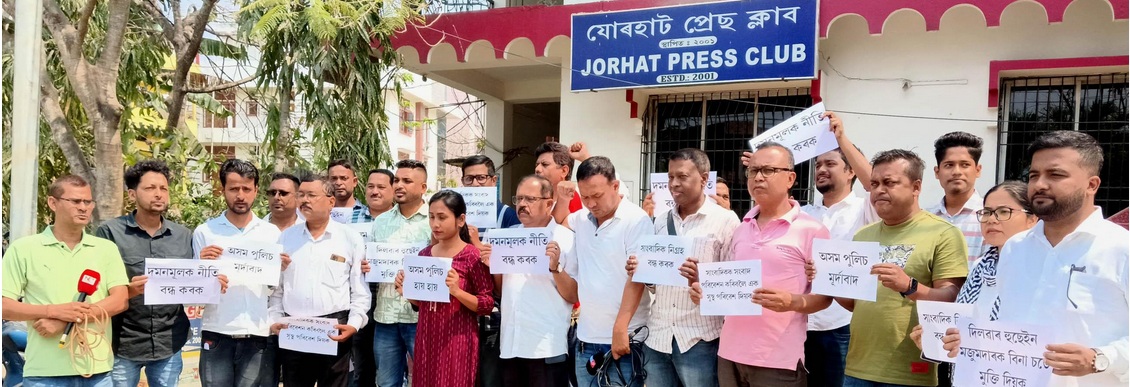 hillong Press Club Condemns Arrest of Journalist Dilawar https://assamtimes.org/node/23377 Mazumdar, the chief reporter of Crosscurrent Digital Media, was first arrested on the night of March 25. Although he was granted bail on March 26, he was rearrested on March 27 based on a complaint filed by the managing director of the Assam Cooperative Apex Bank. . SPC President D L Syiemlieh stated that the rearrest of Mazumdar shortly after being granted bail is deeply concerning and represents a shocking misuse of legal processes. He emphasized that this action constitutes a direct assault on the freedom of the press and the fundamental right to free expression
hillong Press Club Condemns Arrest of Journalist Dilawar https://assamtimes.org/node/23377 Mazumdar, the chief reporter of Crosscurrent Digital Media, was first arrested on the night of March 25. Although he was granted bail on March 26, he was rearrested on March 27 based on a complaint filed by the managing director of the Assam Cooperative Apex Bank. . SPC President D L Syiemlieh stated that the rearrest of Mazumdar shortly after being granted bail is deeply concerning and represents a shocking misuse of legal processes. He emphasized that this action constitutes a direct assault on the freedom of the press and the fundamental right to free expression
PCI Slams Assam CM for Questioning Journalist Authenticity in Re-Arrest Case https://assamtimes.org/node/23378 By AT News | Friday, Mar 28, 2025
पत्रकार जेल में है, कॉमेडियन बेल पर है, ये कैसा भारत है, प्रधानमंत्री मोदी कहाँ हैं? https://www.youtube.com/watch?v=3Blv9jiS3OE असम के पत्रकार सड़क पर उतर गए हैं। साथी पत्रकार की गिरफ्तारी के विरोध में। मुख्यमंत्री कहते हैं कि दिलवर हुसैन मज़ूमदार पत्रकार नहीं है। लेकिन कोर्ट के एक मामले में ज़मानत देते हुए कहा कि गिरफ्तारी के लिए कानून का दुरुपयोग हुआ है। सरकार को कहां पीछे हटना चाहिए था तो चोरी डकैती के आरोप में जेल में डाल दिया। आप ही बताइये। एक बैंक के बाहर प्रदर्शन हो रहा है। उसे कवर करने पत्रकार गया है। पुलिस केस करती है कि किसी का जातिगत अपमान किया है। इस केस में बेल मिलती है तो चोरी के आरोप में जेल में डाल जाता है। पहले चोरी का केस दर्ज होगा या अपमान का? क्या ये पुलिस की दादागीरी नहीं है?
https://en.wikipedia.org/wiki/Murder_of_Ankita_Bhandari
( Open Letter of Supreme Court Advocate Colin Gonsalves On Supreme Court's Refusal to Entertain Petition for CBI Enquiry into murder of Ankita, a young girl who was killed while employed in a hotel run by a BJP leader's close relative in Dehradun.)
Open Letter of Supreme Court Advocate Colin Gonsalves On Supreme Court's Refusal to Entertain Petition for CBI Enquiry into murder of Ankita, a young girl who was killed while employed in a hotel run by a BJP leader's close relative in Dehradun.)
I’m sorry, Ankita that your case in the Supreme Court seeking a CBI investigation into your murder was disposed of and we have not yet managed to catch the main culprit. I’m sorry Ashutosh, fearless journalist and Petitioner before the Court that you have had to suffer victimisation for investigating this case and had FIRs filed against you and also suffered the victimisation of your wife by way of her transfer. I’m sorry Soni Devi, for the death of your darling daughter by a VIP who asked for “special services” from Ankita, a young girl working in the hotel. Her refusal led to her murder.
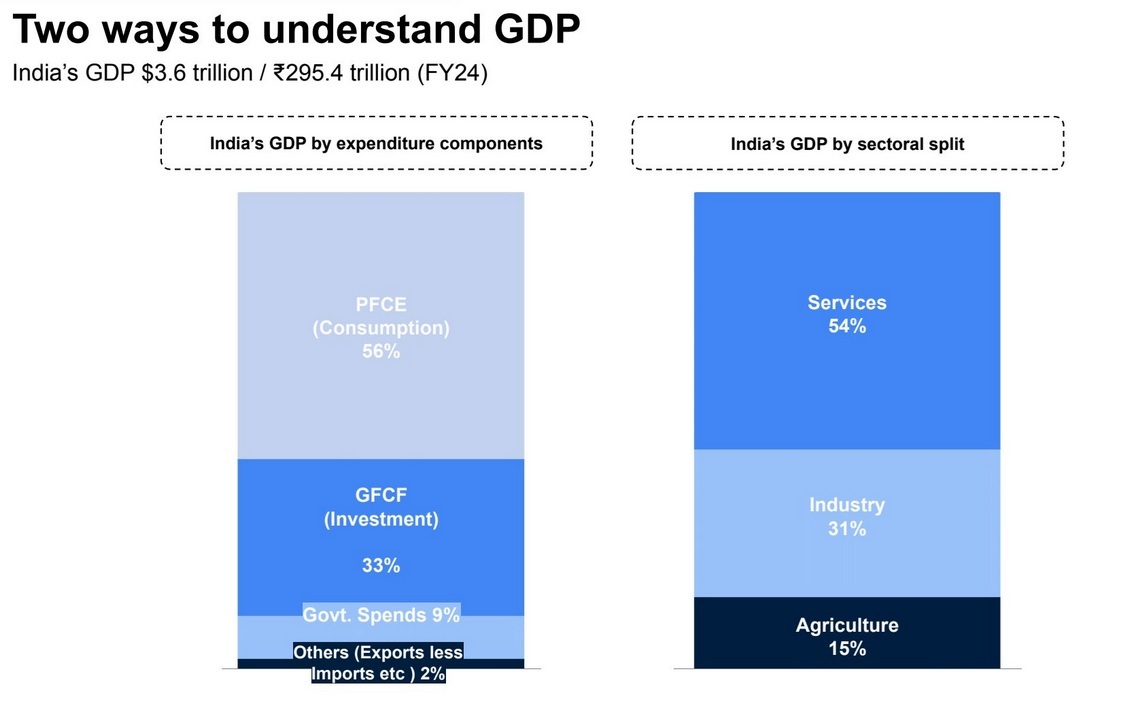 100 crore Indians--90% of population--have no money to spend on non-essential items; 10% are consuming class: Report https://www.livemint.com/news/india/100-crore-indians-have-no-money-to-spend-on-non-essential-items-report-11740593010860.html a study by venture capital firm Blume Ventures..describes aspirant consumers as "heavy consumers and reluctant payers". It highlights that industries like OTT/media, gaming, edtech, and lending are particularly relevant to this segment. The introduction of UPI and AutoPay has facilitated small-ticket transactions, encouraging greater participation from this group in the economy... wealth is becoming more concentrated. Companies are increasingly focusing on premiumisation, a strategy that emphasises high-end, expensive products tailored for wealthier consumers. This trend is evident in the booming sales of luxury homes and premium smartphones, even as budget-friendly options struggle...The report concludes that India’s GDP remains heavily dependent on consumer spending. However, unless income distribution improves, businesses may increasingly cater only to high-income groups, further marginalising a significant portion of the population.
100 crore Indians--90% of population--have no money to spend on non-essential items; 10% are consuming class: Report https://www.livemint.com/news/india/100-crore-indians-have-no-money-to-spend-on-non-essential-items-report-11740593010860.html a study by venture capital firm Blume Ventures..describes aspirant consumers as "heavy consumers and reluctant payers". It highlights that industries like OTT/media, gaming, edtech, and lending are particularly relevant to this segment. The introduction of UPI and AutoPay has facilitated small-ticket transactions, encouraging greater participation from this group in the economy... wealth is becoming more concentrated. Companies are increasingly focusing on premiumisation, a strategy that emphasises high-end, expensive products tailored for wealthier consumers. This trend is evident in the booming sales of luxury homes and premium smartphones, even as budget-friendly options struggle...The report concludes that India’s GDP remains heavily dependent on consumer spending. However, unless income distribution improves, businesses may increasingly cater only to high-income groups, further marginalising a significant portion of the population.
full report: https://docsend.com/view/pyxuqunkm9ejw38q#
Reduced to a Non-Functional Entity': Mumbai Press Club on Delay in Constitution of New Council of PCI f
The Wire Staff https://thewire.in/media/reduced-to-a-non-functional-entity-mumbai-press-club-on-delay-in-constitution-of-new-council-of-pci the Mumbai Press Club (MPC) and the Editors Guild of India (EGI). "are well known and are active in upholding the rights of the Fourth Estate. It is also significant that it was these two organisations that had taken the lead in the previous Press Council on issues such as the wrongful detention of journalists, the suppression of press persons in Jammu and Kashmir and the mass retrenchments of media personnel during the Covid-19 pandemic. Perhaps this was not appreciated in certain quarters,” said the MPC statement.
Zakia Jafri Leaves Behind a Legacy of Resilience and Quiet Dignity https://thewire.in/rights/zakia-jafri-leaves-behind-a-l egacy-of-resilience-and-quiet-dignity Teesta Setalvad Eighty-six years, the day before yesterday, when she left us, Zakia appa was 63 in 2002, no age to hear the cries she did, no age to witness what her eyes could not turn away from. ..
egacy-of-resilience-and-quiet-dignity Teesta Setalvad Eighty-six years, the day before yesterday, when she left us, Zakia appa was 63 in 2002, no age to hear the cries she did, no age to witness what her eyes could not turn away from. ..
Though there had been nothing peaceful about Jafri’spassing. The utterly stoic and adamant refusal of the Jafris to let go of their belief in the India that Ahsan sahab lived and died for, is special and rare.
Zakia appa and the Jafris turned their back on any bitterness born out of the realisation that even their neighbours had joined the mob on February 28. This is what made Zakia appa stand out with her children, as the stellar human rights defender she was... in tribute to Zakia appa, the day before yesterday, “You graced the courts, our homes and hearts. You did so with unwavering fortitude. Theirs is the loss who could not recognise the scale and magnitude of the loss for just what it was.”
Gandhi and the meaning of dharma and violence - https://www.hindustantimes.com/opinion/gandhi-and-the-meaning-of-dharma-and-violence-101738163065788.html The real Kurukshetra is inside our own mind and heart. This is why, for Gandhi, swaraj primarily meant command over our own impulses and emotions. Being free of British rule was to be a side effect of this inner-self-control, this conquest of our own anger and fears...when violence is justified on the basis of identity, of us versus them, there is a huge risk of violating the fundamentals of dharma-as-righteousness, most notably karuna/compassion and rudimentary decency.... when rage and anger generated by the frustrations of everyday life struggles, are mobilised , large numbers of people in the heat of the moment, unable to distinguish which violence is dharmic and which is adharmic.
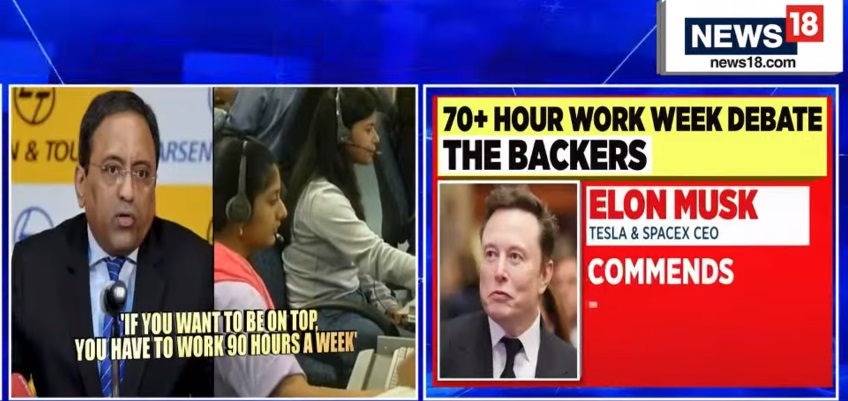 Will you work for 90 hours? https://www.youtube.com/watch?v=XkEWh8cRD9Q Ravish Kumar Official Jan 10, 2025 L&T Chairman SN Subrahmanyan Asks Employees To Work 90 Hours A Week A video of L&T Chairman SN Subrahmanyan is going viral in which he is saying that he regrets that he is not able to get people to work on Sundays. There are many memes going around on social media on his proposal to work for 90 hours a week. Actually, in the last several years, you have been reduced to sending only memes and good morning messages. There is either no job or it is low salary, inflation is at its peak and savings are going down. But you are pushing memes and blowing away every worry. All the questions have already disappeared from the media, the remaining work has been completed by the memes. Stop for a while and think how much space is there for you and your rights in such a proposal.
Will you work for 90 hours? https://www.youtube.com/watch?v=XkEWh8cRD9Q Ravish Kumar Official Jan 10, 2025 L&T Chairman SN Subrahmanyan Asks Employees To Work 90 Hours A Week A video of L&T Chairman SN Subrahmanyan is going viral in which he is saying that he regrets that he is not able to get people to work on Sundays. There are many memes going around on social media on his proposal to work for 90 hours a week. Actually, in the last several years, you have been reduced to sending only memes and good morning messages. There is either no job or it is low salary, inflation is at its peak and savings are going down. But you are pushing memes and blowing away every worry. All the questions have already disappeared from the media, the remaining work has been completed by the memes. Stop for a while and think how much space is there for you and your rights in such a proposal.
https://www.youtube.com/watch?v=po8vzTSTkmk | N18L CNN-News18 Dilip Cherian seem to be "normalising" it.. Saying that many people do work like that especially start-ups. After inviting sharp criticism for its chairman SN Subrahmanyan's idea of a 90-hour workweek, Larsen & Toubro (L&T) defended his remarks saying that 'extraordinary outcomes require extraordinary efforts'. 'We believe this is India’s decade, a time demanding collective dedication and effort to drive progress and realize our shared vision of becoming a developed nation. The Chairman’s remarks reflect this larger ambition,' the company said in a statement.
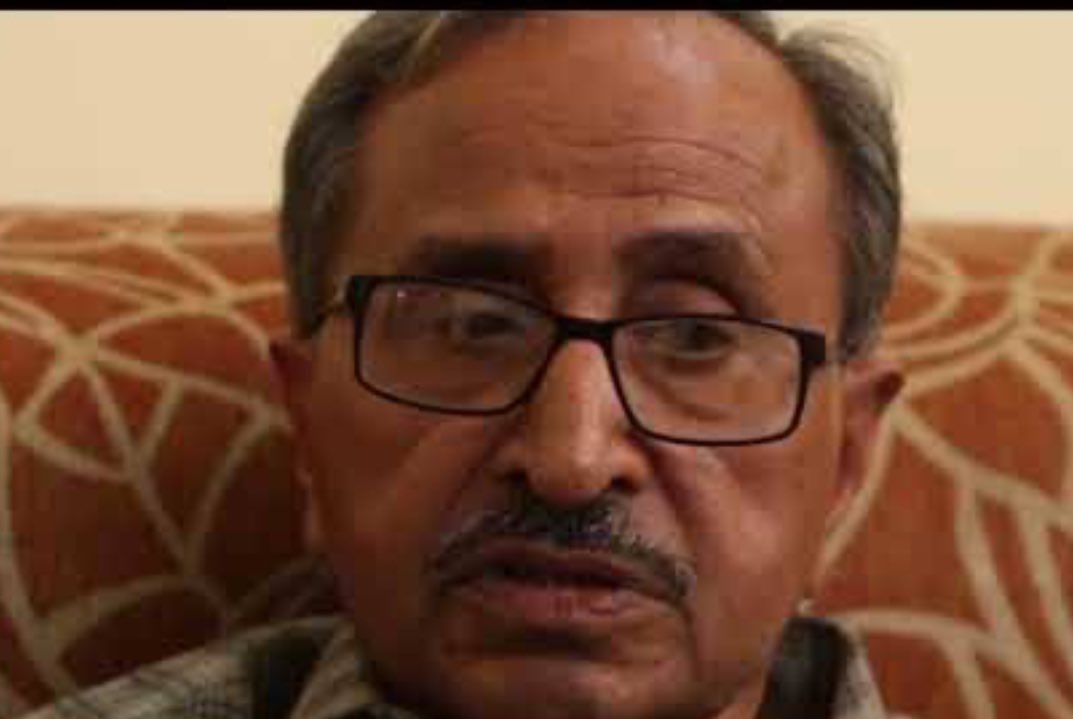
A former head of the PUCL, Ravi ji was an extremely kindred soul. He worked alongside Dr. Binayak Sen, Sudha Bharadwaj and Kavita Shrivastava in the PUCL.
When Justice Sudhir Agrawal of the Allahabad High Court, (the Ayodhya judgement case judge) wrote a letter to the Bar, suggesting that judges and senior advocates make contribution to help hapless lawyers during corona virus days, he as PUCL national president, publicly responded, saying that first this judge should give up his unnecessary Z-plus security (after the kind of judgement he had given), and secondly, he said, these days clients instead of engaging Senior Advocates prefer to engage kith and kin of Judges practicing in high court.
It embarrassed many 'uncle judges' no end.
Fond of quoting HM Seervai at length, he was the stuff the quest for justice in an unequal world is made of. No flag will fly at half mast, but his demise is nevertheless a huge loss, the kind which should be mourned in the recesses of our souls.
A lot of warriors for justice do not get the sort of headlines that some receive. Would we see gushing elegies in the papers? -- A Whats App Post.
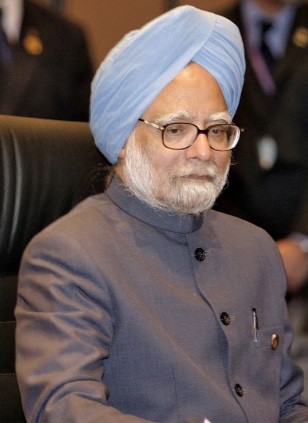 Not many people would know this: in 2004 when Manipur plunged into a deep crisis, then PM Dr MMS went to Imphal and handed over the Kangla Fort, the most revered symbol of power to the public. After independence, this was kept captive to the Assam Rifles. Here is his speech there on Nov 20, 2004. https://archivepmo.nic.in/drmanmohansingh/speech-details.php?nodeid=45 Extracts: he ancient heritage of Manipur and its tradition of bravery continue to echo throughout the length and breadth of the State and inspires the rest of the country. The Kangla Fort exemplified the bravery of Manipuris and witnessed many a fierce battle against British authorities who wanted to capture it and conquer its people. ...
Not many people would know this: in 2004 when Manipur plunged into a deep crisis, then PM Dr MMS went to Imphal and handed over the Kangla Fort, the most revered symbol of power to the public. After independence, this was kept captive to the Assam Rifles. Here is his speech there on Nov 20, 2004. https://archivepmo.nic.in/drmanmohansingh/speech-details.php?nodeid=45 Extracts: he ancient heritage of Manipur and its tradition of bravery continue to echo throughout the length and breadth of the State and inspires the rest of the country. The Kangla Fort exemplified the bravery of Manipuris and witnessed many a fierce battle against British authorities who wanted to capture it and conquer its people. ...

- What kind of India do we seek?
- 210 Forest Rights Act Claim Forms Approved in Gram Sabha at Naranag, Kangan
- The Right to Live Under the Grip of UAPA
- Freefall In India’s Academic Freedom Ranking Is Reflected In Cancelled Lectures At IIT Bombay & Elsewhere
- Another PM Cares?
- Solidarity with Ladakh
- Whose City is it anyway? by Amit Singh - on Jai Bhim Nagar
- Transformational Solidarity: A Dalit Feminist Viewpoint
- Ladakh Solidarity- PUCL-NAPM-VS
- For 2024, Opposition is still in the game
- Rat-hole Mining - basics
- call for a rethink on River Front Development
- Decolonize to Decarbonize: Our Call to Action for Climate Justice at COP28
- What Killed Gandhi!
- Caste, the cancer afflicting Sanatan Dharma
- G20 बनाम We20
- 3 सप्टेंबर 2023 रोजी वाढवण समुद्रकिनारीभव्य एल्गार मोर्चाचे आयोजन
- Inside Indian Energy and Mining Giant Vedanta's Campaign to Weaken Key Environmental Regulations
- Hrut Collage - Urmila Samson Homeschool
- All Those Demanding a New Constitution Are Fighting for a Less Equal India
Page 3 of 16

